Archive for September, 2011
Japanese Dragons Posted by Ginny on Sep 30, 2011
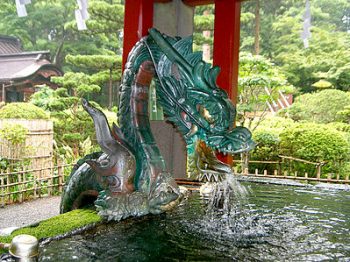
Dragons are a familiar staple of Japanese fables. Take for example the water dragon deity Mizuchi (蛟). In one story Mizuchi came to Emperor Nintoku (仁徳天皇) in a dream. Mizuchi offered to prevent the flooding of a river in exchange for a human sacrifice. One of the men chosen as a sacrifice saved his own…
Japanese Mushrooms Posted by Ginny on Sep 29, 2011
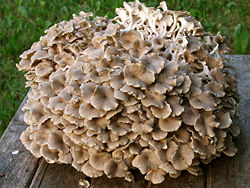
Eating mushrooms is good for the health and tasty too! It’s a good thing that there are many varieties of mushrooms used in Japanese cuisine! Probably the most internationally known Japanese mushroom is a type of mushroom called Shiitake (シイタケ) Mushrooms. Shiitake Mushrooms are sometimes used as garnish for misoshiru or miso soup (味噌汁). They…
Modern Japanese Buildings Posted by Ginny on Sep 27, 2011
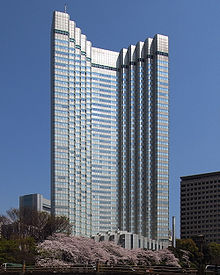
If you’ve ever wondered where to go to see the best marvels of architecture, look no further than the Shiodome City Center (汐留シティセンター). The Shiodome City Center is large, beautiful, light blue skyscraper that is headquarters to airline and travel industries. In addition, there are many restaurants that feature Korean, French, Indian and Japanese cuisines…
Kimono Posted by Ginny on Sep 23, 2011
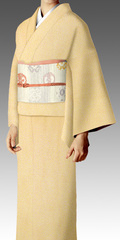
The kimono (着物) is the single most iconic representation of traditional Japanese culture. The word ‘kimono’ is a generic term to describe a type of traditional Japanese garment that comes in a t-shaped robe, but the kimono is anything but generic. There are many different and unique kinds of kimonos that are worn for certain…
Flowers in Japan Posted by Ginny on Sep 20, 2011
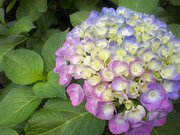
Depending on the season, you can see some beautiful flowers in Japan. For example, Sakura (桜) or cherry blossoms bloom in late March and early April. My favorite place to see cherry blossoms is in Shinobazu no Ike (不忍池) or Shinobazu Pond in Ueno Kōen or Ueno Park (上野公園). Cherry blossoms have a symbolic significance…
Kyoto Posted by Ginny on Sep 15, 2011
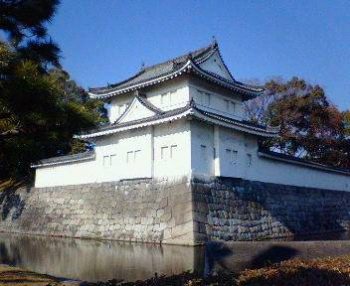
Kyoto (京都) is a beautiful city with strong links to traditional Japanese architecture and culture. When people think of Kyoto, the image of Pontochō (先斗町) is probably one of the first images that spark the imagination. Pontochō is a well-known geisha district where traditional Japanese theatre, dance and song are still alive and entertaining the…
Japanese Sculpture Posted by Ginny on Sep 12, 2011

Although Japanese paintings get a lot of international attention, Japanese sculptures are also quite amazing and should get the reverence that Japanese paintings get. For example, one of the more famous sculptors in Japan is Tankei (湛慶). The most famous sculpture by Tankei is the sculpture in a temple called Sanjusangendō (三十三間堂). The sculpture is…


